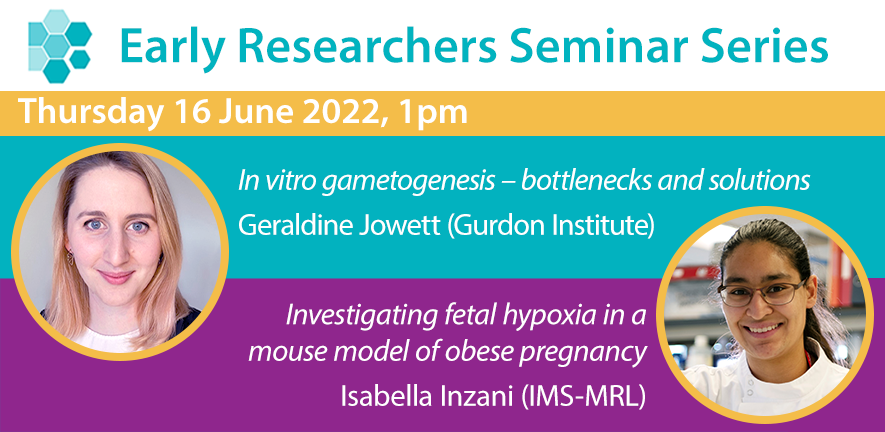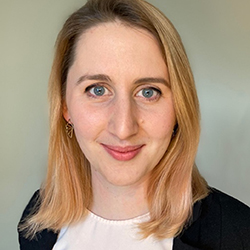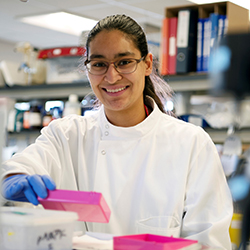
Thursday 16 June 2022, 1pm - 2pm
In vitro gametogenesis – bottlenecks and solutions
Geraldine Jowett (Gurdon Institute)
Investigating fetal hypoxia in a mouse model of obese pregnancy
Isabella Inzani (IMS-MRL)
Chair: Dr Rachael Crew (PDN)
Meeting link
Please register on Eventbrite to receive the Zoom meeting details (they will be available a couple of days before the seminar): https://erss-june-2022.eventbrite.co.uk
Speakers and abstracts
In vitro gametogenesis – bottlenecks and solutions
Geraldine Jowett (Gurdon Institute)
Assisted Reproductive Strategies (ART) of the 20th century offered routes to parenthood to many yet cannot resolve all fertility issues. For instance, when there is an absence of gametes due to developmental disorders or diseases like childhood cancers, strategies like in vitro fertilisation (IVF) fall short. In vitro gametogenesis (IVG) - the derivation of sperm and egg in a dish - holds the potential to revolutionise reproductive equity for a broader group of future parents. This talk will discuss primordial germ cells (PGCs), the embryonic precursors of sperm and eggs. These bipotential cells commit to either male or female gamete fate upon reaching the gonad, a choice that is predominantly regulated by the sex of the surrounding gonadal tissue: XX chromosomes drive ovary and thus egg cell fate, and the presence of a Y‑chromosome diverts this process toward testicular maturation, resulting in sperm development. Recapitulating this cell fate decision has represented a critical bottleneck to our understanding of developmental infertility and for feasible IVG approaches, and preliminary data and strategies for overcoming this hurdle will be discussed in this seminar.
Geraldine Jowett is a Schmidt Science Fellow in the Gurdon Institute, Cambridge, researching the mammalian germ cell commitment, with a specific focus on the transition from bipotential germ cells to committed gametes.
Investigating fetal hypoxia in a mouse model of obese pregnancy
Isabella Inzani (IMS-MRL)
Maternal obesity during pregnancy increases the risk of cardiometabolic diseases in her offspring. My research aimed to understand how obese pregnancy effects the in utero environment. This is important for the future development of therapeutic interventions. We used a mouse model of obese pregnancy to study the level of hypoxia in fetal and placental tissues at mid-gestation. We found that maternal obesity globally increased fetal tissue hypoxia levels, but did not cause placental hypoxia. Fetal hypoxia positively correlated with both maternal body weight and serum insulin concentrations. We conclude that fetal hypoxia may therefore be one mediator of the effects of maternal obesity on offspring health, and maternal insulin may be an important therapeutic target to prevent maternal obesity-induced fetal hypoxia.
About Isabella Inzani: I am a PhD student at the Institute of Metabolic Science – Metabolic Research Laboratories (IMS-MRL), in the lab of Professor Susan Ozanne. My research interests are to investigate the effect of maternal obesity on the health of her offspring, from early development to throughout adult life. I also aim to develop successful intervention strategies for the mother during obese pregnancy which can help to prevent adverse outcomes in her offspring. For this research I use a combination of mouse in vivo, molecular and histological analyses.
The Early Researchers Seminar Series (ERSS) is a platform for PhD Students and early career researchers (ECRs) at the University of Cambridge with research foci on reproduction to share and discuss their research with other academics from a range of disciplines also researching reproduction at the University. Seminars are held on Zoom on the third Thursday of every month, 1pm - 2pm. For more information, and for the full 2021 - 2022 programme, please see the main ERSS page.



